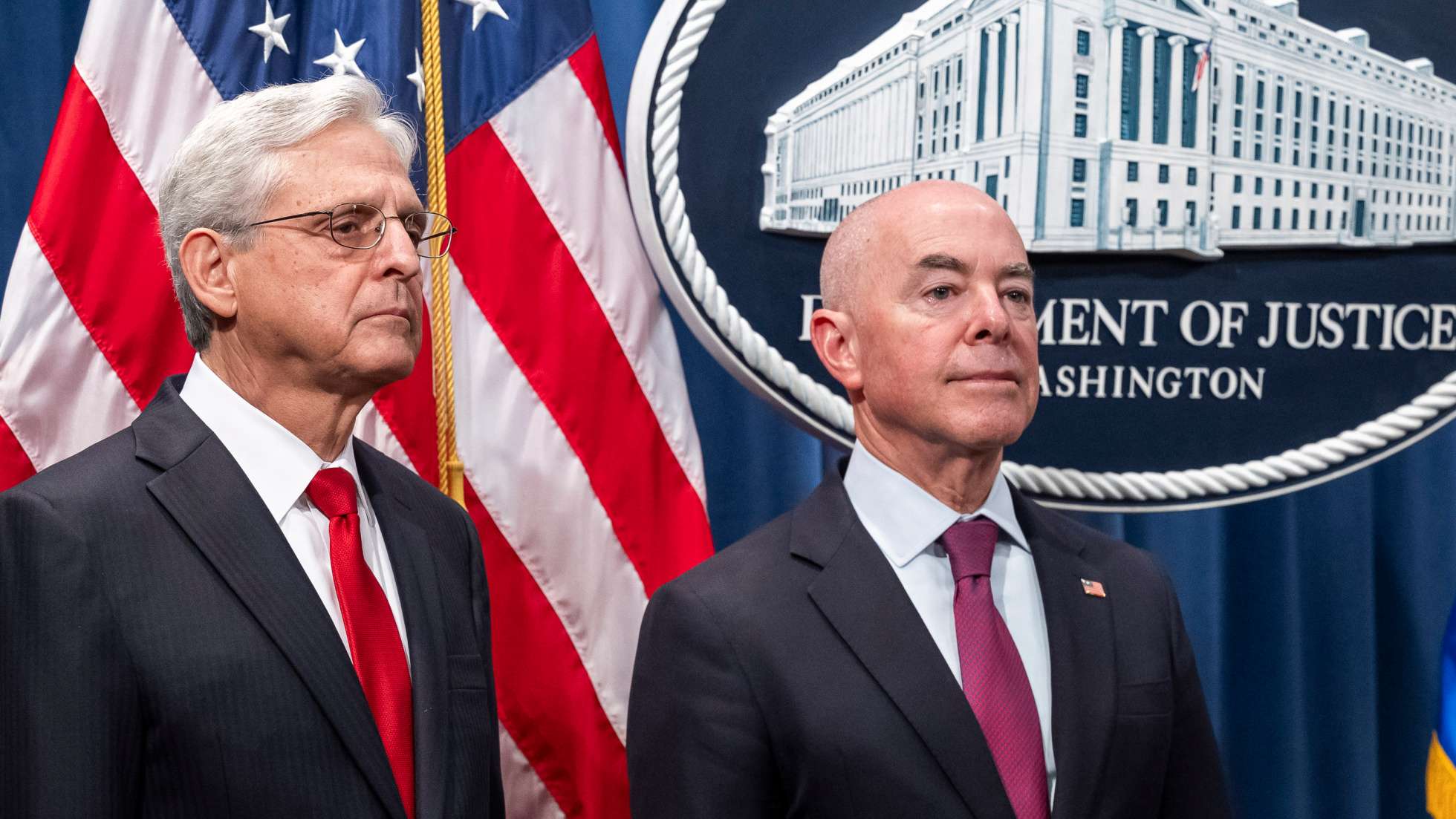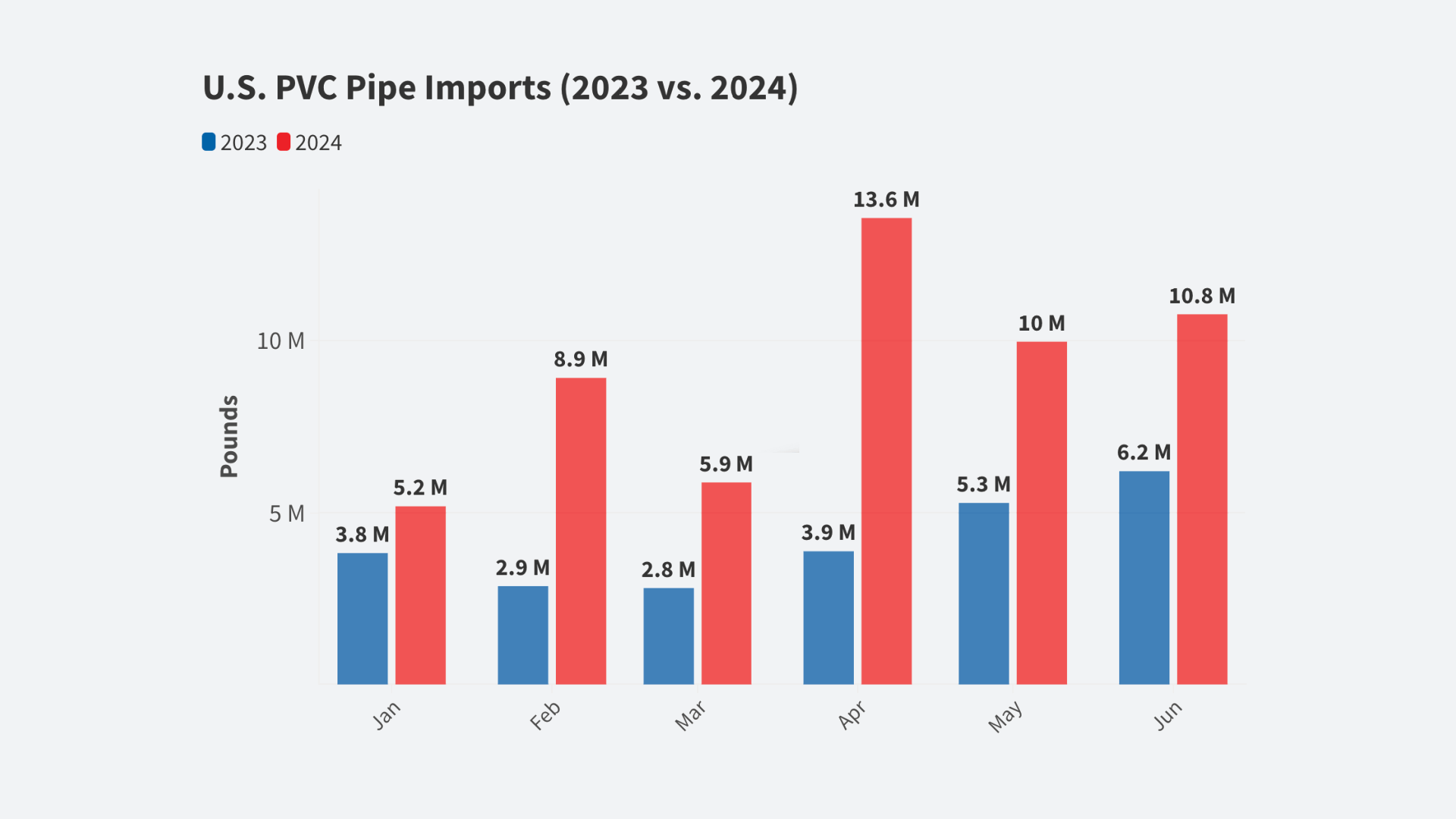
Fast Track Would Reduce Congressional Power, Subject U.S. To Global Tribunals, And Pave Way For New Executive Actions
[Reposted from the site of Senator Jeff Sessions (R-AL) | May 20, 2105]
Myth: Trade agreements implemented under fast-track will not supersede existing U.S. law.
Truth: Every trade agreement negotiated by the President and foreign governments is accompanied by implementing legislation which necessarily supersedes existing law. Proponents of fast-track are relying on semantics: the trade agreement itself will not supersede existing law, but the “fast-tracked” legislation implementing the trade agreement will. What’s more, the Trans-Pacific Partnership—which would be fast-tracked by TPA—will give jurisdiction to international tribunals to settle disputes between parties to the agreement.
Myth: Congress will have more control over the trade process under fast-track.
Truth: If Congress gives the Executive six-year fast-track authority, the Senate will cede its ability to amend any future legislation implementing any yet-unseen global trade and regulatory pact; cede its ability to control debate over that pact; and cede its ability to subject that pact to the 67-vote threshold required for treaties, as well as the 60-vote threshold required for important legislation. Proponents of fast-track suggest the negotiating objectives somehow bind the Administration; this is false. The negotiations on the Trans-Pacific Partnership are nearly complete and have been ongoing for years, long before any negotiating objectives will have been suggested. Moreover, the negotiating objectives are vague and lack any meaningful enforcement mechanisms—particularly enforcement from Senators and Representatives not on the revenue committees. Congress will be giving up the only leverage it has: the ability to amend legislation or to refuse to cut-off debate. No fast-tracked deal has ever been defeated, regardless of whether fast-track “objectives” have been ignored, overlooked, or violated by the Executive.
Myth: Congress is ceding no institutional powers under fast-track.
Truth: By eliminating its own powers of review and amendment, Congress would dramatically shift the carefully calibrated balance of power between Congress and the President. Fast-track would ensure that the President has complete discretion over the drafting of international agreements Congress has never even seen.
Myth: If the President ignores the negotiating objectives, Congress can simply block the deal.
Truth: A fast-tracked trade deal has never been blocked. By denying members any opportunity to slow debate, mobilize the public by seeking extra time, amend the deal, or seek a better deal, fast-tracked legislation is always ratified no matter how flawed. The train will have left the station once fast-track is adopted. Without any possibility of a 60-vote, let alone 67-vote, threshold in the Senate, this final check will have been removed. Additionally, the revenues and rules committees have exclusive control over enforcement, eliminating the ability of rank-and-file members to hold the Administration accountable for violations. Those saying Congress can just vote down a bad trade deal ignore the unbroken cycle of history.
Myth: If, for the first time ever, Congress somehow did manage to block a fast-tracked deal, there is no further threat to U.S sovereignty.
Truth: Even if Congress declines to implement a trade agreement, the President’s signature will already be on it, opening the U.S. up to judgments before an international arbitration body known as the International Center for Settlement of Investment Disputes (ICSID), or perhaps even before the WTO. An offshoot of the World Bank, ICSID exists to hear disputes between international companies and foreign governments, at all levels. Congress ratified a 1965 treaty which stipulated that any ICSID awards will be binding as if awarded by a U.S. court, and the Vienna Convention—which the State Department generally considers “customary international law”—states that the President’s signature on the agreement obligates the U.S. not to “frustrate the purpose” of a trade agreement. As such, the President’s signature alone could put many U.S. industries and localities at risk, not to mention binding Congress’ ability to pass future laws without significant international consequences.
Myth: Fast-track has protections for U.S. sovereignty.
Truth: Fast-track offers no protection against delegations of power or authority to international tribunals should Congress adopt the implementing legislation of any future fast-tracked deal. This is particularly relevant when considering the TPP, which has promised to set up an international commission to make changes to the TPP in the future. The “Living Agreement” section of TPP calls for the creation of this new body, known as the “Trans-Pacific Partnership Commission,” and TPP’s implementing legislation could well cede important congressional power to this new international body as it did with the WTO. The overview of the TPP provided to members of Congress when they view the TPP’s text states that the amendment and accession processes will be similar to those of the WTO, suggesting that Congress will indeed be removed from the process after the agreement’s initial implementation. The Ministerial Conference of the WTO, for instance, has the power to amend the agreement or to add new countries to the agreement simply with a two-thirds vote (not a unanimous one), and the WTO’s implementing legislation makes these changes binding on the U.S. without any additional congressional approval. At the very least, Congress will not know the truth until it has seen the TPP’s implementing legislation—which will not happen until Congress has already promised to fast-track TPP.
Myth: Trade agreements negotiated under TPA cannot be used to bypass U.S. immigration laws.
Truth: Fast-track includes negotiating objectives to remove barriers to services that could easily be used by the Administration to justify the expansion of foreign worker programs. There is also an entire chapter on “Temporary Entry” in TPP, which could be used to facilitate the admission of more temporary foreign workers into the United States. Even if immigration or temporary entry prohibitions were included in fast-track, the negotiating objectives laid out by fast-track are not binding on the Administration. If any future trade deal, TPP or otherwise, contains language that paves the way for more foreign workers, members will be powerless to strike the offending provision. Additionally, the “living agreement” provision allows for subsequent amendments to the trade agreement after its initial implementation, creating an altogether new avenue for changes to foreign worker programs. Finally, the President has refused to foreclose the possibility of using executive actions or side agreements to facilitate foreign worker expansions, as he did with South Korea as part of the recent South Korean trade deal. In short, fast-track creates broad new avenues for the White House to bring in more foreign workers—whether in the light of day, or behind closed doors no one can open—while giving up for six years the meaningful ability of Congress to do anything about it.
Myth: Congress must pass fast-track in order to pass TPP or any other trade agreements.
Truth: Fast-track is a mechanism to effectively pre-approve the speedy movement of global trade pacts through Congress. Congress is more than capable of passing trade agreements without a fast-track and has done so in the past.
Myth: TPP’s “living agreement” provision is not cause for concern.
Truth: The Congressional Research Service has said TPP’s “living agreement” provision is “unprecedented.” In essence, the provision allows the agreement to be subsequently amended after initial implementation by its member states, and also allows new member countries to join. TPP could well cede vast swathes of regulatory authority to a foreign body and expose Americans to the rulings of a new unelected and unaccountable global Commission.
Myth: Any changes in U.S. law or policy negotiated after Congress approves TPP or other fast-tracked global pacts would also have to be approved by Congress.
Truth: TPP legislation fast-tracked through Congress will likely contain a provision pursuant to the “living agreement” clause which would delegate vast regulatory authority to the new TPP Commission. The TPP Commission will be established under TPP with broad powers to oversee the implementation and amendment of the trade agreement. Further, TPP’s implementing legislation would likely mirror the implementing legislation of the World Trade Organization in 1994. Under that legislation, amendments to the WTO or domestic adoption of WTO interpretations or rules only requires the bare minimum of reporting requirements by the Administration—no additional vote from Congress is required. Indeed, as the history of the WTO reflects, countries have been able to join the WTO as a matter of course without any additional input from Congress; more than that, countries have even been able to join WTO without the approval of Executive Branch representatives of the United States, as WTO only requires the consent of two-thirds of member nations to add new countries to the agreement.
Myth: Trade agreements implemented under fast-track will not supersede existing U.S. law.
Truth: Every trade agreement negotiated by the President and foreign governments is accompanied by implementing legislation which necessarily supersedes existing law. Proponents of fast-track are relying on semantics: the trade agreement itself will not supersede existing law, but the “fast-tracked” legislation implementing the trade agreement will. What’s more, the Trans-Pacific Partnership—which would be fast-tracked by TPA—will give jurisdiction to international tribunals to settle disputes between parties to the agreement.
Myth: Congress will have more control over the trade process under fast-track.
Truth: If Congress gives the Executive six-year fast-track authority, the Senate will cede its ability to amend any future legislation implementing any yet-unseen global trade and regulatory pact; cede its ability to control debate over that pact; and cede its ability to subject that pact to the 67-vote threshold required for treaties, as well as the 60-vote threshold required for important legislation. Proponents of fast-track suggest the negotiating objectives somehow bind the Administration; this is false. The negotiations on the Trans-Pacific Partnership are nearly complete and have been ongoing for years, long before any negotiating objectives will have been suggested. Moreover, the negotiating objectives are vague and lack any meaningful enforcement mechanisms—particularly enforcement from Senators and Representatives not on the revenue committees. Congress will be giving up the only leverage it has: the ability to amend legislation or to refuse to cut-off debate. No fast-tracked deal has ever been defeated, regardless of whether fast-track “objectives” have been ignored, overlooked, or violated by the Executive.
Myth: Congress is ceding no institutional powers under fast-track.
Truth: By eliminating its own powers of review and amendment, Congress would dramatically shift the carefully calibrated balance of power between Congress and the President. Fast-track would ensure that the President has complete discretion over the drafting of international agreements Congress has never even seen.
Myth: If the President ignores the negotiating objectives, Congress can simply block the deal.
Truth: A fast-tracked trade deal has never been blocked. By denying members any opportunity to slow debate, mobilize the public by seeking extra time, amend the deal, or seek a better deal, fast-tracked legislation is always ratified no matter how flawed. The train will have left the station once fast-track is adopted. Without any possibility of a 60-vote, let alone 67-vote, threshold in the Senate, this final check will have been removed. Additionally, the revenues and rules committees have exclusive control over enforcement, eliminating the ability of rank-and-file members to hold the Administration accountable for violations. Those saying Congress can just vote down a bad trade deal ignore the unbroken cycle of history.
Myth: If, for the first time ever, Congress somehow did manage to block a fast-tracked deal, there is no further threat to U.S sovereignty.
Truth: Even if Congress declines to implement a trade agreement, the President’s signature will already be on it, opening the U.S. up to judgments before an international arbitration body known as the International Center for Settlement of Investment Disputes (ICSID), or perhaps even before the WTO. An offshoot of the World Bank, ICSID exists to hear disputes between international companies and foreign governments, at all levels. Congress ratified a 1965 treaty which stipulated that any ICSID awards will be binding as if awarded by a U.S. court, and the Vienna Convention—which the State Department generally considers “customary international law”—states that the President’s signature on the agreement obligates the U.S. not to “frustrate the purpose” of a trade agreement. As such, the President’s signature alone could put many U.S. industries and localities at risk, not to mention binding Congress’ ability to pass future laws without significant international consequences.
Myth: Fast-track has protections for U.S. sovereignty.
Truth: Fast-track offers no protection against delegations of power or authority to international tribunals should Congress adopt the implementing legislation of any future fast-tracked deal. This is particularly relevant when considering the TPP, which has promised to set up an international commission to make changes to the TPP in the future. The “Living Agreement” section of TPP calls for the creation of this new body, known as the “Trans-Pacific Partnership Commission,” and TPP’s implementing legislation could well cede important congressional power to this new international body as it did with the WTO. The overview of the TPP provided to members of Congress when they view the TPP’s text states that the amendment and accession processes will be similar to those of the WTO, suggesting that Congress will indeed be removed from the process after the agreement’s initial implementation. The Ministerial Conference of the WTO, for instance, has the power to amend the agreement or to add new countries to the agreement simply with a two-thirds vote (not a unanimous one), and the WTO’s implementing legislation makes these changes binding on the U.S. without any additional congressional approval. At the very least, Congress will not know the truth until it has seen the TPP’s implementing legislation—which will not happen until Congress has already promised to fast-track TPP.
Myth: Trade agreements negotiated under TPA cannot be used to bypass U.S. immigration laws.
Truth: Fast-track includes negotiating objectives to remove barriers to services that could easily be used by the Administration to justify the expansion of foreign worker programs. There is also an entire chapter on “Temporary Entry” in TPP, which could be used to facilitate the admission of more temporary foreign workers into the United States. Even if immigration or temporary entry prohibitions were included in fast-track, the negotiating objectives laid out by fast-track are not binding on the Administration. If any future trade deal, TPP or otherwise, contains language that paves the way for more foreign workers, members will be powerless to strike the offending provision. Additionally, the “living agreement” provision allows for subsequent amendments to the trade agreement after its initial implementation, creating an altogether new avenue for changes to foreign worker programs. Finally, the President has refused to foreclose the possibility of using executive actions or side agreements to facilitate foreign worker expansions, as he did with South Korea as part of the recent South Korean trade deal. In short, fast-track creates broad new avenues for the White House to bring in more foreign workers—whether in the light of day, or behind closed doors no one can open—while giving up for six years the meaningful ability of Congress to do anything about it.
Myth: Congress must pass fast-track in order to pass TPP or any other trade agreements.
Truth: Fast-track is a mechanism to effectively pre-approve the speedy movement of global trade pacts through Congress. Congress is more than capable of passing trade agreements without a fast-track and has done so in the past.
Myth: TPP’s “living agreement” provision is not cause for concern.
Truth: The Congressional Research Service has said TPP’s “living agreement” provision is “unprecedented.” In essence, the provision allows the agreement to be subsequently amended after initial implementation by its member states, and also allows new member countries to join. TPP could well cede vast swathes of regulatory authority to a foreign body and expose Americans to the rulings of a new unelected and unaccountable global Commission.
Myth: Any changes in U.S. law or policy negotiated after Congress approves TPP or other fast-tracked global pacts would also have to be approved by Congress.
Truth: TPP legislation fast-tracked through Congress will likely contain a provision pursuant to the “living agreement” clause which would delegate vast regulatory authority to the new TPP Commission. The TPP Commission will be established under TPP with broad powers to oversee the implementation and amendment of the trade agreement. Further, TPP’s implementing legislation would likely mirror the implementing legislation of the World Trade Organization in 1994. Under that legislation, amendments to the WTO or domestic adoption of WTO interpretations or rules only requires the bare minimum of reporting requirements by the Administration—no additional vote from Congress is required. Indeed, as the history of the WTO reflects, countries have been able to join the WTO as a matter of course without any additional input from Congress; more than that, countries have even been able to join WTO without the approval of Executive Branch representatives of the United States, as WTO only requires the consent of two-thirds of member nations to add new countries to the agreement.













